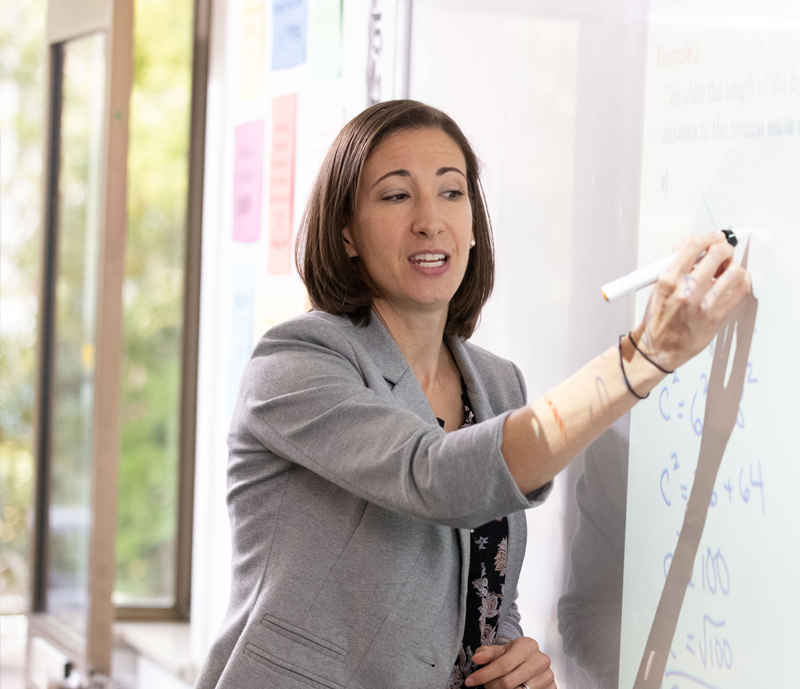Upskilling the teaching profession
Accelerating teachers’ acquisition of digital skills
In 2020 and 2021 teachers rapidly learnt digital delivery skills ‘on the job’. To give recognition to these skills for the purposes of professional learning and re-registration requirements, and to encourage further skills development to support the digital transformation of education, teachers must be given the opportunity to certify and further polish the technological and online teaching skills acquired for remote delivery.

Teacher accreditation is regulated by state and territory governments, which also specify the professional learning requirements for teachers to maintain ongoing registration. Even so, the federal government has achieved substantial national coherence in initial teacher education and teaching standards through the work of the Australian Institute of Teaching and School Leadership (AITSL).
Through AITSL, the Australian Government could commission the development of free online short courses to build on teachers’ new skills and fill skills gaps to help create a teacher workforce qualified with skills to use digital technologies for student learning both in the classroom and online. The Australian Government could negotiate with the states and territories to gain agreement to national accreditation of such courses to meet teachers’ professional learning requirements.
Embedding new skills in Initial teacher education (ITE)
ITE courses must now cover what have become new basic skills for teachers following the disruption of COVID-19: online lesson preparation and online teaching skills; skills in monitoring and supporting student health and wellbeing; and skills in helping parents engage with their children’s learning.
The Australian Government is well-positioned to initiate this inclusion through its role in setting the framework for accreditation of ITE courses.
Encouraging teachers to develop mentoring skills
The Australian Government can support the development of ITE students and graduates, and the ongoing professional development of teachers, by assisting experienced teachers to acquire mentoring and coaching skills.
The Government could task AITSL – which already provides
online resources for teachers to help them develop coaching skills – to develop a framework for certified online courses in teacher mentoring. While certified courses on mentoring are available through some state and territory departments of education, the Government could subsidise certified online courses offered by universities which also offer ITE, with the possibility of such courses counting towards post-graduate qualifications.
The development of mentoring courses by university education faculties or departments could help enrich the support given to schools hosting ITE students on practicum placements.
More examples of how strengths-based policies can rapidly strengthen Australia’s school system:
•
Supporting the digital transformation of Australian education
•
Re-establishing & strengthening students’ learning journeys
•
Supporting student wellbeing
•
Strengthening all levels of school leadership
•
Engaging parents in their children’s education
(Image courtesy of Hills Grammar)